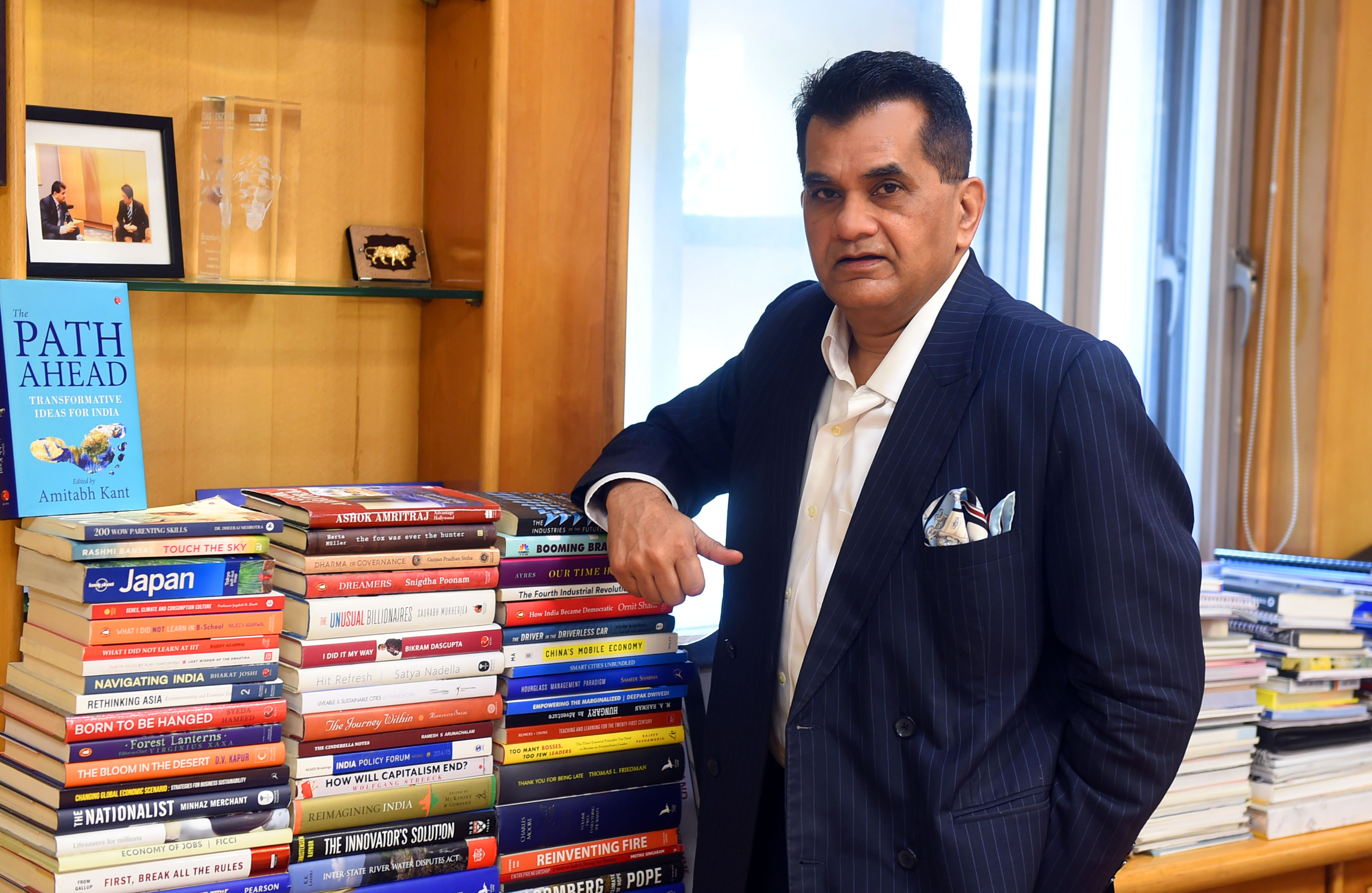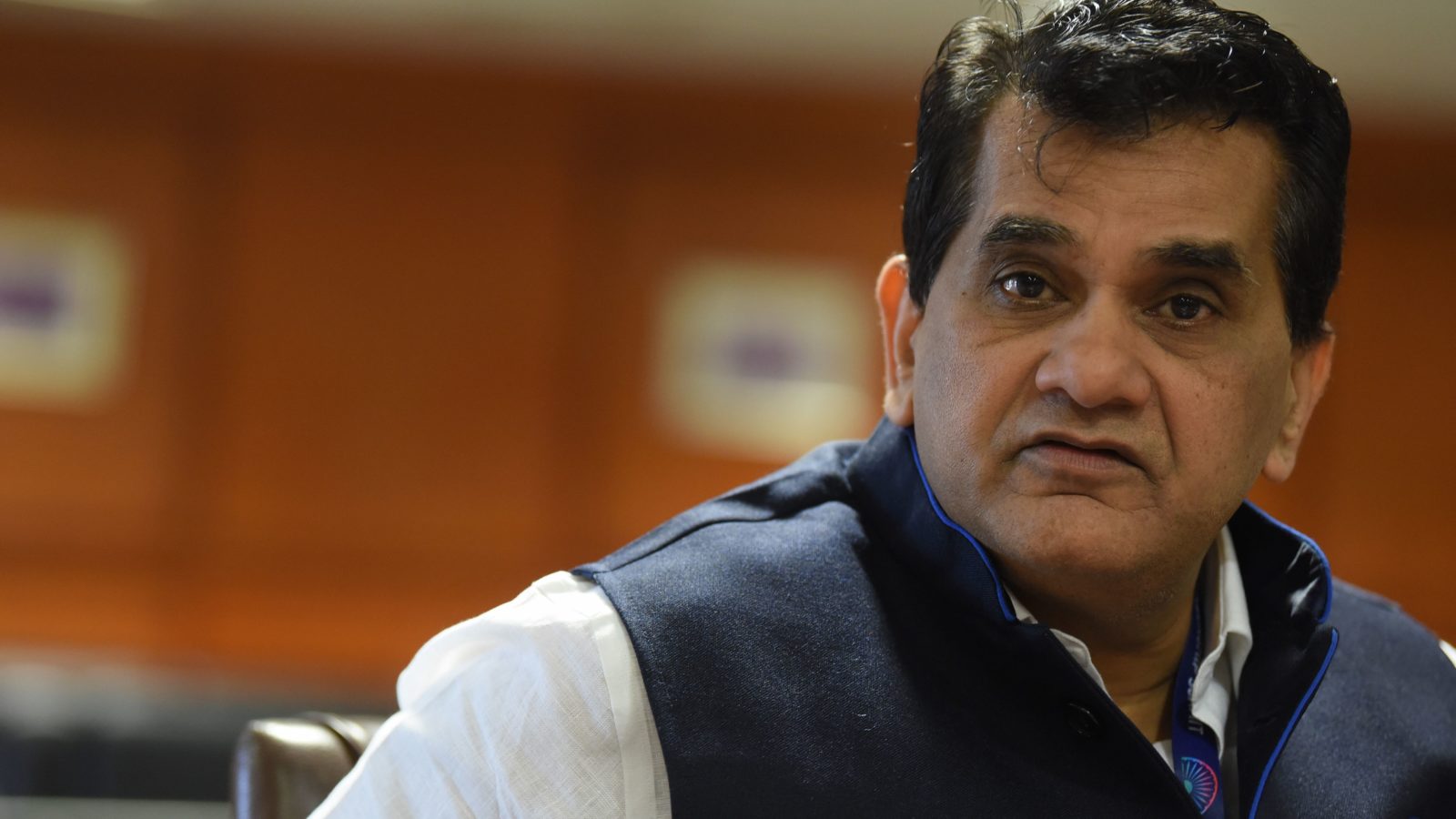“There is no one who has only risen in life, there are bound to be sharp downs,” says Amitabh Kant. But, he adds, “Every single day is an opportunity and you must tap into that opportunity.” One of India’s leading bureaucrats and CEO of NITI (National Institution for Transforming India) Aayog, Kant knows what he is talking about. He is no stranger to overcoming tribulations.
In fact, his posting as secretary (Tourism) in Kerala, in 1997, was supposed to be a punishment posting, he tells Thrive Global India. “Nobody wanted to be in tourism, no one had heard of Kerala as a tourist destination.” So he decided to use the crisis in his career as a “huge opportunity”.
Viewing Kerala as a massive untapped opportunity he presented it as an anti-thesis of every other tourist destination. Soon the backwaters of Kerala were opened up, traditional carpenters were engaged to build the kettuvallams (traditional houseboats), its Ayurveda roots were highlighted as was the authentic cuisine of “stews and appams”, its martial art and the beautiful Nālukettu architecture were all revived, and poachers were convinced to turn into guides.
“The world of tourism is about differentiation and we differentiated Kerala from every other tourist destination. We didn’t sell it as a mass destination but as a high value destination,” Kant says. All this happened because he didn’t give in when he was down and out, he points out.
After God’s Own Country, came the Incredible India campaign, also at a time when such a launch seemed doomed to fail (the 9/11 strikes were followed by an attack on the Indian parliament; a war was raging in Afghanistan; and hotels had 15 per cent occupancy). “At the peak of that crisis we launched the Incredible India campaign. And that was a huge success!”
What followed were the immensely successful Make in India and Startup India campaigns. The key, says the 1980 batch IAS officer, is to work with the “finest and the most creative people. If the government has to excel, it has to bring in the best people around.”
People around him speak of the extremely positive vibes he exudes. “If you have a positive frame of mind and you pursue it with vigour you will achieve success… Positivity begets success.”
“Indians need to get negativity out of their minds. There is too much negativity floating around.”
In a 9 am to 9 pm working schedule, the secret to sustaining this positive energy is sticking to a daily routine of ‘me time’. Learn the art of taking time off and sweat it out, says Kant who has also authored Branding India—An Incredible Story. “I do a combination of several things. From 6 am to 8.30 am is my personal time. I exercise, do some yoga, on Sundays I play 18 holes of golf. You must sweat it out with hard physical exercise and must enjoy life.”
“Without entertaining yourself, spiritually invigorating yourself, you will never be able to work hard.”

The spirit of hard work comes from his upbringing. “I imbibed middle class values of integrity from my parents who taught us that whatever you do, do it to the best of your ability.” While his father Rajni Kant was in the administrative services, his mother Dr Sita Srivastava was a Fulbright scholar, an author and the principal of Maitreyi College, Delhi. His brother Ravi Kant was the former managing director of Tata Motors. Kant was a Chevening scholar and his alma maters (Modern School, Delhi; St Stephens, Delhi University and Jawaharlal Nehru University) are all top-rung.
After finishing his education, “I joined government service to transform lives of people. Once you work with them and are able to ensure that their lives change, it gives you a different kind of spiritual elevation and much greater internal contentment that you don’t get otherwise and that is the purpose of working in the government. Your ability to make a difference to people’s lives is enormous.”
It is not all about work though. Kant takes care to pause and holiday — when he can—with his family.
His advice to millennials?
“Keep upsetting the status quo. Keep doing new innovative things.”
And yes, “do what you think is right, you don’t necessarily have to listen to your dad or the elder generation but bring a lot of positivity” in whatever you do.
Want to share your story of how you thrive? Write to us at [email protected]
More on Thrive Global India:
Vishy Anand May Look Calm, But There’s a Battle Inside
How Sleep And Exercise Changed Rishad Premji’s Life
Morning Rituals That Power Padmaja Ruparel’s Days
What Do You Care What Other People Think?
Sports is an Integral Part of My Creative Process: Vishal Bhardwaj


